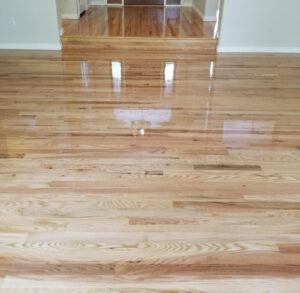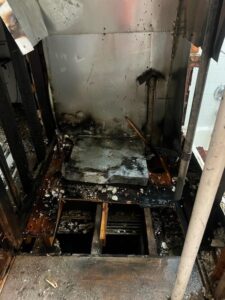Plumbing problems are a common part of homeownership, and knowing how to address them can save you time, money, and a lot of headaches. From minor leaks to major blockages, understanding these issues can empower you to handle them effectively or decide when to call in a professional. In this guide, we’ll cover some of the most common plumbing repair Naples FL issues and provide tips on how to fix them, with a special focus on leak detection and leak detection services.
Table of Contents
Plumbing problems are a common part of homeownership, and knowing how to address them can save you time, money, and a lot of headaches. From minor leaks to major blockages, understanding these issues can empower you to handle them effectively or decide when to call in a professional. In this guide, we’ll cover some of the most common plumbing repair Naples FL issues and provide tips on how to fix them, with a special focus on leak detection and leak detection services.
Why Understanding Plumbing Issues Is Crucial
Plumbing issues can escalate quickly if left unchecked. Here’s why it’s essential to be proactive:
• Cost Savings: Early detection and repair can prevent costly damage and extensive repairs.
• Health Hazards: Leaks can lead to mold growth and structural damage, posing health risks to your family.
• Water Waste: A leaking faucet or pipe can waste a significant amount of water, impacting both your bills and the environment.
1. Dripping Faucets
What You Need to Know
Dripping faucets are not just annoying; they can waste a lot of water over time. A single drip per second can waste over 3,000 gallons a year!
How to Fix It
• Turn Off the Water Supply: Locate the shutoff valve under the sink and turn it off.
• Remove the Faucet Handle: Use a screwdriver to take off the handle and access the inner components.
• Check the Washer: Most leaks are caused by worn washers. Replace the washer and reassemble the faucet.
• Test for Leaks: Turn the water supply back on and check for leaks.
2. Clogged Drains
What You Need to Know
Clogged drains can slow down your plumbing and even cause backups. Regular maintenance can help, but when a clog occurs, you’ll need to act quickly.
How to Fix It
• Boiling Water: Start by pouring boiling water down the drain to break up any grease or soap buildup.
• Use a Plunger: If boiling water doesn’t work, try plunging the drain to dislodge the clog.
• Drain Snake: For stubborn clogs, a drain snake can be effective. Insert the snake into the drain and twist to break up the blockage.
• Chemical Drain Cleaners: If all else fails, a commercial drain cleaner may help, but use them sparingly as they can damage pipes.
3. Running Toilets
What You Need to Know
A running toilet can waste gallons of water daily. It’s usually caused by a faulty flapper, fill valve, or float.
How to Fix It
• Check the Flapper: Remove the tank lid and inspect the flapper. If it’s warped or not sealing properly, replace it.
• Adjust the Float: If the float is set too high, it can cause overflow. Adjust the float to lower the water level.
• Inspect the Fill Valve: If the fill valve is malfunctioning, it may need to be replaced.
4. Leaky Pipes
What You Need to Know
Leaky pipes can lead to significant damage if not addressed promptly. Common causes include corrosion, loose fittings, and high water pressure.
How to Fix It
• Identify the Leak: Look for water stains on walls or ceilings, and listen for dripping sounds.
• Use a Pipe Clamp: For small leaks, a pipe clamp can be a temporary fix. Simply place the clamp over the leak and tighten it.
• Seal with Epoxy Putty: For a more permanent solution, use epoxy putty to seal small leaks.
• Call a Professional: If the leak is extensive, it’s best to contact a leak detection service to identify the source and make necessary repairs.
5. Water Heater Issues
What You Need to Know
Water heater problems can range from inadequate hot water to leaks. Understanding the common issues can help you troubleshoot effectively.
How to Fix It
• No Hot Water: Check the thermostat settings and ensure the pilot light is lit for gas heaters.
• Leaking Water Heater: Inspect for signs of leakage at the base. If detected, contact a plumber immediately.
• Sediment Buildup: If you notice discolored water or strange noises, it may be time to flush the tank. Follow the manufacturer’s instructions to do so safely.
6. Leak Detection and Leak Detection Services
What You Need to Know
Leaks can often be hidden within walls, ceilings, or underground, making them difficult to detect. This is where leak detection services come into play.
Why Use Leak Detection Services?
• Advanced Technology: Professional services utilize infrared cameras and acoustic sensors to locate leaks without invasive digging.
• Prevent Costly Damage: Early detection of leaks can prevent extensive water damage and mold growth.
• Expertise: Professionals can identify the source of the leak and recommend the best repair options.
When to Call for Help
If you notice:
• Sudden increases in your water bill.
• Wet spots on walls or floors.
• Mold growth in damp areas.
It’s time to call a leak detection service to assess the situation and take action.
Conclusion
Understanding common plumbing repair issues and how to fix them can save you significant time and money while keeping your home safe and functional. From dripping faucets to major leaks, knowing when to tackle these problems yourself and when to call for professional help is essential.
If you encounter persistent plumbing issues or suspect hidden leaks, don’t hesitate to reach out to a trusted plumber or a leak detection Naples FL service. Proactive measures can help ensure your plumbing system operates efficiently, protecting your home and enhancing your quality of life. Stay informed, stay proactive, and enjoy the peace of mind that comes with a well-maintained plumbing system.




More Stories
Great Expectations Floor Restoration Boise: Bringing Your Hardwood Floors Back to Life
On-Site Public Insurance Claims Adjuster Los Angeles: Why Local Expertise Makes All the Difference
Renovate Builders Remodeling Seattle: Transforming Homes with Expert Craftsmanship